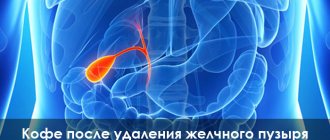Everyone knows about the benefits of coffee, but few people know that this invigorating drink can turn out to be a drug. I'm ready to share my experience. You probably greeted this morning with a cup of aromatic coffee? What's bad about it? Just one thing - caffeine has the ability to cause addiction in some people.
For nine years I was addicted to caffeine. At first I drank 1-2 cups of coffee a day. Coffee invigorated me and gave me energy. I associate happy moments in life with a cup of coffee: the joy of waking up, meeting friends, insights and victories. Then the “dose” had to be increased to 4-6 cups, the euphoric effect lasted exactly 40-60 minutes, and then a sharp decline occurred. In moments of decline, I became aggressive, irritated and looked for a replacement. I drank more tea instead of coffee, tried to find an alternative.
I began to notice how hundreds of people, morning, afternoon and evening, press buttons on coffee machines and wander into coffee shops to get an extra dose of caffeine. I was surrounded by the same “zombies” as me.
Withdrawal from not receiving a cup of coffee on time led to the idea that it was an addiction. I began to study literature, scientific research and understand the essence of the issue. Do I control my desires or does a cup of coffee control me?
Is it possible to become addicted to coffee?
Coffee beans contain many different substances: antioxidants, vitamins, phenolic compounds, aromatic substances. There is the most caffeine: from 0.6 to 2.7% of the total composition. And most of the myths are associated with the influence of caffeine.
Caffeine is not only found in coffee. There is enough of it in black and green tea, cocoa, mate, and this substance is also used in soft and energy drinks, medications and active supplements.
Caffeine can actually become addictive, especially on a physical level. It stimulates the nervous system, increases cardiac activity, dilates blood vessels and generally affects the body in much the same way as adrenaline. Acting in this way, caffeine relieves headaches, stimulates breathing and cardiac activity during colds, increases mental and physical performance, and eliminates drowsiness. The body likes this effect, so it can become addictive.
What type are you?
Getting rid of it is not so difficult: just stop consuming caffeine, and in a few days, maximum weeks, your body will get used to doing without it. At the same time, such an addiction cannot be called an addiction: psychological dependence on caffeine, like tobacco or drugs, can only be obtained if you consume it in huge quantities. To do this, you need to consume caffeine in its pure form, brew the drink very strongly or drink it in liters. For example, this is what they do in prisons with black tea: they brew “chifir”. Chifir is a psychostimulant that causes addiction: it not only contains a lot of caffeine, but also a high concentration of harmful alkaloids. In ordinary life we do not drink such drinks.
Causes of addiction
Caffeine addiction occurs when the drink is consumed regularly over a long period of time. Its appearance is provoked by the following factors:
- having problems sleeping. Coffee gives you energy in the morning and helps with lack of sleep. The drink provides a powerful surge of strength. Therefore, a person constantly drinks coffee to stay in good shape. Dependence on caffeine gradually develops;
- smoking. The nicotine contained in tobacco products may reduce the effects of caffeine. As a result, the smoker has to regularly increase his coffee servings;
- intense rhythm of life. In conditions of acute lack of time, some people replace a full meal with a cup of an invigorating drink. As a result, they themselves do not notice how they become dependent on caffeine.

If signs of addiction appear, you need to replace coffee with another healthy drink.
How does coffee affect the body?
It cannot be said that we know everything about the effects of coffee: its individual substances have not yet been sufficiently studied. But recent research has rehabilitated the drink: coffee can also have a positive effect.
In July 2021, the results of a large-scale study were published: data was collected on half a million people from 10 European countries over 16.4 years. Scientists tested how drinking coffee affects the development of diseases of the cardiovascular system, liver and digestive organs, cancer in women and suicide in men. The results are surprising: Those who drank 3 or more cups of coffee per day had a lower risk of death from all these causes than non-coffee drinkers. And this relationship did not change depending on the country.
In a 2014 study, scientists found that drinking coffee in moderation prevents the risk of developing Alzheimer's disease. Several other studies have shown that caffeine reduces the risk of developing Parkinson's disease and type II diabetes.
It is worth remembering that caffeine promotes leaching of calcium from bones and can negatively affect the fetus. During pregnancy, it is advised not to drink coffee at all, and for teenagers and the elderly not to drink more than a cup a day, preferably with milk.
The benefits and harms of coffee
The World Health Organization certainly does not ban coffee, and even promotes its consumption in moderation.
The effect of its use is familiar to all of us - vigor, activity and good mood throughout the day.

Coffee quickly returns activity to the brain, allowing you to almost instantly “get involved” in the mental process, and according to some researchers, it helps to avoid the development of Alzheimer’s disease.
At the same time, coffee is not good for everyone.
There are a number of diseases for which it is better to abstain from this drink.
This applies primarily to people with cardiovascular diseases, such as hypertension and heart failure.
Important! The National Institute of Medicine recommends consuming no more than 400 mg of caffeine per day.
This is approximately 4 coffee cups or 250 ml of aromatic drink.
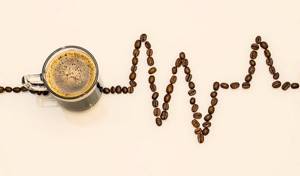
By the way, the same amount of drink is contained in 10 cans
Coca-Cola or 2 cans of energy drink.
But true coffee lovers ignore these recommendations!
According to reviews, many people drink 5, 10, or even 15 cups of coffee a day and claim that they feel great!
Is it really? Let's figure it out.
Why is caffeine addiction dangerous?
A natural drink in moderate quantities (no more than 2 cups) is beneficial. But if a person is truly addicted to coffee, then this has a negative effect on the body. If you drink an instant drink, there will be no benefit from it at all. Coffee addicts rarely admit their addiction. If we consider all the pros and cons of coffee, we can conclude that a person who has no contraindications can drink no more than one cup of the natural drink per day.
Doses over 500 mg (about 5 cups) cause intoxication. Restlessness and irritability may appear, sometimes tachycardia and arrhythmia occur, and increased diuresis. Intoxication provokes stomach upset. In severe cases, tremors of the limbs occur and consciousness becomes confused.
When intoxication is repeated daily, the body adapts and over time, caffeine does not cause a feeling of vigor, but there is a feeling of depression, loss of strength, and headaches may occur. In severe cases of addiction, depression develops. Caffeine in large doses provokes the formation of a special type of blood protein in the liver. It is directly related to free testosterone and is able to destroy its molecules. This negatively affects male potency.
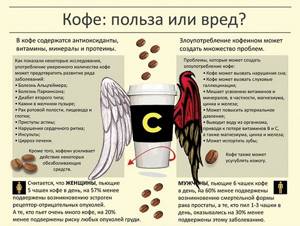
Coffee is a drug that causes physical dependence. It is not dangerous if you do not abuse it. With regular use, the consequences for the body can be sad. When you suspect addiction, you need to think about how to stop drinking coffee.
Symptoms of addiction
Symptoms of caffeine addiction are most pronounced when you try to eliminate the drink from your diet. The following adverse symptoms may occur:
- headache;
- the appearance of a feeling of anxiety;
- sleep disturbance;
- nausea;
- irritability.
Note! If you experience symptoms of caffeine withdrawal, you need to be extremely careful in choosing medications. Some medications (for example, Citramon for headaches) also contain caffeine.

Coffee lovers
How is caffeine harmful to the body?
What are the harms and benefits of caffeine for humans? Caffeine is known for its stimulating properties. Products containing this substance give vitality and help improve performance. The drink helps eliminate drowsiness and fatigue. But caffeine can also cause harm to the body:
- when consumed in large quantities, coffee has a negative effect on the functioning of the cardiovascular and digestive systems;
- in some cases, the drink provokes a deterioration in mood, the occurrence of osteoporosis and headaches;
- Abuse of coffee often leads to a persistent increase in blood pressure and the occurrence of hypertension in people who have crossed the fifty-year mark.
How are coffee and testosterone related in men? The condition of muscle and bone tissue largely depends on testosterone. The hormone plays a big role in sperm production. When testosterone levels decrease in a man's body, adverse changes are observed. In a representative of the stronger sex, sexual desire may noticeably decrease, and erection deteriorates. With an increased level of testosterone in the body, the likelihood of prostate cancer increases and the risk of infertility increases.
The level of testosterone in the body is influenced not only by coffee abuse, but also by other factors:
- stressful situations;
- the presence of bad habits (addiction to alcoholism and smoking).
Note! When consumed in moderation, caffeine's effect on testosterone is negligible. In some situations, the drink even increases sexual desire.
Is drinking 3 in 1 coffee harmful or beneficial? This product is not a worthy alternative to natural coffee beans. When used, blood glucose levels may increase and heart function may worsen. With regular consumption of 3-in-1 coffee, it can cause excess weight. The product often contains flavorings and substances of chemical origin that are harmful to health.
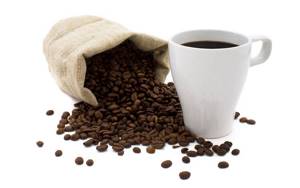
When drinking coffee more than the permissible limit, it adversely affects the body
How is coffee different from caffeine?
We know that coffee contains many active substances. One of them is caffeine. It can be considered a medicinal substance. Caffeine, for example, is included in Citramon tablets. Like any medicinal substance, caffeine can be beneficial or harmful. The concepts of coffee and caffeine should not be confused. Caffeine has substances similar to it in chemical structure. These are, for example, theophylline (found in tea leaves), theobromine (found in cocoa beans). Cocoa, by the way, contains a little caffeine itself. That is why it is also found in chocolate. True, its doses there are simply meager. Caffeine is a powerful stimulant. It can affect the functioning of the central nervous system. Therefore, this substance is widely used in pharmacology. It has long been successfully used for medicinal purposes.
If the dose of caffeine is exceeded, you should expect the following negative consequences:
Is it harmful to drink coffee every day?
- Increased blood pressure.
- Increase in temperature.
- Strengthening the functioning of the cardiovascular system.
- A sharp expansion of the lumen of blood vessels.
- Expansion of the lumen of the bronchi.
- Increased urination.
- Strengthening muscle activity.
By the way, all these negative consequences can be observed after just a few cups of aromatic strong espresso. But with a normal dose, all these symptoms appear very weakly and can even be considered positive. Only when we go beyond the limits of reasonable coffee consumption does it become harmful and even destructive to the body.
It is especially dangerous to drink coffee for people who suffer from high blood pressure or vascular diseases. Increased doses of coffee can lead to the development of pathologies of the heart, blood vessels, digestive system, and central nervous system. Diseases can develop in acute or chronic form. For example, a simple tendency to high blood pressure can turn into hypertension, and increased cardiac activity develops into a pathologically rapid heartbeat. Muscles may be working too hard. Trembling will appear. Feelings of fear, depression, depression, panic, nervousness may also develop, and the process of sweating intensifies.
Causes
There can be quite a few reasons for coffee addiction: from the desire to conform to social norms to an objective lack of certain substances in the body.
For example, a person does not want to stand out in a team if the office where he spends his working day has a tradition of endless coffee breaks.
Or, due to ignorance that chronic hypotension can and should be treated by a doctor, someone artificially invigorates themselves, trying to bring blood pressure to the physiological norm.
But there are still several main reasons for the emergence of painful addictions.
Chronic lack of sleep
If night sleep is constantly interrupted for some reason, or a person works shifts and is sometimes forced not to sleep at all at night or sleeps less than 7-8 hours a day, then drowsiness is a natural consequence of this daily routine. Moreover, it usually occurs at least three times a day: in the morning, when it is difficult to get out of bed, in the afternoon and early evening, after 16-17 hours, when it is too early to go to bed, but the body’s resources have already been exhausted.
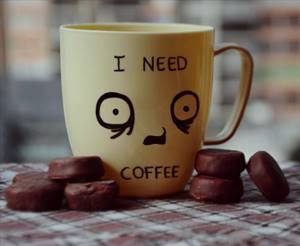
Chronic lack of sleep and resulting fatigue is the main reason for coffee abuse
For this reason, a coffee lover turns to the drink as his last salvation throughout the day. For the same reason, he has difficulty falling asleep: he has to go to bed after midnight, which immediately significantly reduces the quality and productivity of night rest. There is again less time for sleep than there could be... And the whole cycle repeats again.
Artificial light
In recent decades, people have spent a lot of time surrounded by electronics and artificial daylight. As a result, biochemical processes in the brain are disrupted. After artificial light, it requires the artificial vigor of caffeine.
Nicotine addiction
Nicotine poisons the body: this has been proven long ago and definitively. After smoking, weakness, loss of strength, and apathy occur. Hence the desire to drink coffee or other caffeinated drinks again and again.
Signs that there is a problem
In order not to miss an emerging problem, you need to listen to your condition. So, signs of coffee addiction:
- You're ready to make aromatic coffee almost anywhere. You don't even need a coffee maker for this.
- You are familiar with the taste of all drinks containing coffee.
- Just hearing the mention of coffee can make you feel a rush of positive emotions. You immediately feel the anticipation that the dose of much-desired pleasure from a coffee drink will follow.
- If you can't drink coffee in the morning, it's better not to bother you.
- You can tell real coffee by smell.
- You absolutely do not accept decaffeinated coffee.
- An Americano can replace your breakfast, and a cappuccino can even replace your lunch.
- The high cost of coffee doesn't stop you. You are ready to spend as much as possible on it.
- You are not a barista. At the same time, you can distinguish varieties and mixtures of coffee by their aroma.
- You are already well known in almost all nearby coffee shops.
- The barista is ready to make coffee for you as soon as he sees you at the door of the coffee shop.
- You do not accept tea and other light drinks.
- You consider all mentions that coffee can be harmful to be frivolous or custom-made.
- You prefer to order desserts, liqueurs and coffee-flavored ice cream.

It’s easy to identify your coffee addiction.
If there are moments in these descriptions that resonate with you, then be careful! You are addicted! Do I need to get rid of this bad habit? Only you yourself must decide this question. Now doctors are able to help get rid of even the most advanced coffee addiction. But they will be powerless if you yourself do not want to eliminate it.
Consequences
If you do not pay attention to the signs of such a disorder, painful conditions may gradually develop, the elimination of which will take much more effort and time. The occurrence of serious ailments is also possible.
- Neurotic manifestations. In addition to increased nervous excitability, these are pathologies such as anxiety, trembling in the arms and legs, and constant sweating.
- Hypertension. In small doses, coffee even has a beneficial effect on blood vessels. But due to abuse, high blood pressure can become chronic.
- Cardiovascular diseases. Caffeine activates the activity of the heart muscle. But tachycardia and arrhythmia will definitely not make you feel good.
If you decide to overcome addiction
We get used to coffee only after we start drinking large doses of this drink for quite a long time. You won't become a coffee lover if you drink 3-4 cups a day. Doctors consider this dose safe. If you drink more, there is reason to think about it. First, it’s worth determining what exactly you depend on - the aromatic coffee itself or the caffeine it contains. If you stop drinking coffee but increase your intake of tea and chocolate, your body will continue to receive caffeine. It is also found in carbonated sweet drinks, such as Pepsi and Coca-Cola.
For many, a cup of coffee becomes a kind of ritual, a habit developed over the years. Getting their next dose of caffeine is not as important to them as simply doing some coffee-related activities. They like to grind grains into aromatic powder, pour it into a pot or coffee maker, brew an invigorating drink, and then happily drink a cup or two. This is more of a psychological habit than a truly physiological addiction. Many people like to drink espresso, Americano or cappuccino at a coffee shop. It’s cozy there, you can sit with friends and have a nice conversation while sipping a fragrant drink. Some people drink it for company, at work or on vacation with friends.

To successfully get rid of caffeine addiction, you need to understand why you need it.
If you really understand that addiction has appeared and want to get rid of it, it is important to build a competent and effective strategy of behavior. It will consist of the following important steps:
- Drink less drinks and foods that contain caffeine.
- Reduce your coffee consumption by about half.
- You can replace coffee with tea, preferably green.
- Avoid chocolate, carbonated drinks and strong black tea.
- Try replacing coffee with a decaf version. After a month, you can try to give it up too. Replace it with green tea, berry infusions, and herbal infusions.
If you realize that you are addicted not so much to caffeine as to the coffee ritual, then the strategy will be slightly different:
- First, change your usual diet. New eating habits will help you renew the drinks you prefer to drink. Replace coffee with green tea, rosehip infusion or other aromatic drinks. You can choose delicious herbal tea.
- Try to change the coffee shop to a cafe or restaurant.
- You may need to change the company you dine with, for example. Sometimes a change of environment is enough to soon forget about coffee addiction.
What if this is true love?
Is it really impossible to just love him? What to do if the thought of a cup of coffee warms your heart, the aroma lifts your mood, and you even have a scattering of coffee beans on your phone screensaver?
Of course, you shouldn’t deny yourself your favorite drink without any medical contraindications. After all, sometimes coffee literally works wonders.
Ground coffee Lebo “Prince”, for Turkish, 100 g 79 rub.
Coffee beans LavAzza “Qualita Oro”, 500 g 752 rub.
Ground coffee Lavazza “Crema e Gusto”, 250 g 258 rub.
Lavazza “Qualita Oro” coffee beans, 250 g 351 rub.
Ground coffee Lebo “Extra”, for Turkish, 75 g 61 rub.
Ground coffee Lavazza “Qualita Oro”, in a tin can, 250 g 400 rub.
Bean coffee Bushido “Red Katana”, 1000 g 1921 rub.
Coffee beans Lavazza “Qualita Oro”, 1000 g 1550 rub.
Choose your favorite coffee on TEA.ru
For some, this is an unshakable morning tradition that charges them with energy for the whole day. Or a way to pause and treat yourself to something delicious. In psychology, there is such a concept as “ritual” - a certain action that, in a stressful situation, helps you gather yourself, feel confident, structure your thoughts, and calm yourself down. And for many people, it is a cup of aromatic coffee that has these properties. This means that you can love coffee, and even more so enjoy it.

How to get rid of coffee addiction?
Often a person himself notices a deterioration in his health, various negative effects and consequences after taking large amounts of caffeine. He gradually comes to understand that he is becoming or has become addicted to coffee.
In such a situation, it is better to try to recover from coffee addiction on your own, which is not at all difficult. After all, this form is not severe and can be overcome in a relatively short period of time.
The most common treatment method is to completely stop taking caffeine-containing drinks and medications for at least 7 days.
It would be better to start treatment on Saturday or during vacation, so that for the next 48 hours, while caffeine is removed from the body, you can calmly stay at home and not depend on external factors (work and bosses).
The importance of water in the fight against addiction
On such days, replacing “coffee” positive emotions with others is of great importance: you need to eat only your favorite and tasty dishes, and more of them. But you can't eat chocolate. It is better to eat small portions 4-5 times a day to increase the body's defenses.
Many coffee lovers, when getting rid of addiction, try to drink large amounts of liquid: at least 2 liters per day. Unboiled and still water will not only help cleanse the body of toxins and caffeine, but will also add energy. For taste and freshness, you can add lemon juice to it.

Water will help you cope with coffee addiction
If for some reason you feel too bad, then as an exception you are allowed to drink 1 cup of coffee during the day.
Get ready psychologically
For a positive result, it is important to prepare yourself psychologically to achieve your goal. Understanding that drinking coffee is addictive, it is recommended to read articles about its dangers and negative effects on health and important body systems. Just understanding and recognizing the fact of coffee addiction is the first step towards recovery, which can be accomplished without doctors in the comfort of home and solely through fortitude and a strong desire to get rid of this problem forever.
You should be prepared for the fact that in the first days of weaning off coffee, unpleasant sensations often appear that you must endure:
- severe loss of strength;
- headache;
- drowsiness.
The degree of their manifestation varies from person to person, but any person is able to physically endure them in order to be cured.
Think about the positives
To achieve your goal of getting rid of coffee addiction, it is better to think about the positive aspects of such a decision:
- improving your well-being, stopping headaches and other unpleasant symptoms;
- opportunities to save on purchasing expensive coffee varieties.
Find replacement drinks
Experts and former coffee lovers who have already overcome their addiction recommend replacing coffee with other drinks that do not contain caffeine. These include herbal teas with ginger or ginseng root, juices, compotes or fruit drinks. You should not drink black or green tea on such days because of the caffeine content in them.

Natural juices are a healthy and tasty way to replace coffee in your diet.
As practice shows, within a week all symptoms of coffee addiction go away completely. After this, you can either refuse further consumption of coffee and find a complete replacement for it, or continue to enjoy it, but not more than 1-2 cups per day. In the latter case, you must continue to adhere to the basic rules for drinking the drink:
- never make strong coffee;
- do not use it often;
- Do not use to stimulate performance.
For those who do not want to resort to abruptly quitting coffee, other ways to combat addiction can be offered:
- gradually reducing the amount of drink consumed per day to 1 cup per day;
- replace your favorite drink with green tea, which also contains caffeine but is healthy;
- if it is impossible to refuse a morning cup, then it is recommended to drink a glass of water first;
- to support the body, drink vitamin and mineral complexes, and also include an adaptogen (ginseng tincture, etc.) in your diet;
- turn your attention to delicious varieties of aromatic herbal or tropical teas and healthy juices.
In the fight for your own health and recovery from coffee addiction, you must follow the main rule - believe in the success of overcoming it. After all, most coffee lovers won this battle successfully.
How to get rid of caffeine addiction
There are several ways to combat addiction:
- extreme. You should completely avoid invigorating drinks for several days. In this case, you need to be prepared for a deterioration in health, loss of strength, migraines, and increased irritability. It is recommended to set aside weekends for this. It is enough to hold out for just three days, and the condition will return to normal. The main thing is not to abuse coffee in the future;
- gradual. In order to get rid of addiction, you should slowly reduce the dosage, try not to drink several servings in a row. Even if a feeling of discomfort appears, you should be patient. Over time, the interval between coffee drinks will increase. It will be possible to reduce the consumption of drinks to the permissible dosage (2-3 cups);
- substitutive _ This method is suitable for those who have decided to completely give up coffee drinks. In this case, you should select a replacement option. This could be tea, juice or chicory.

When getting rid of a bad habit, physical activity is effective. With their help, it is possible to fight stress and make it easier to tolerate giving up your favorite drink. In addition, sport also gives energy, gives strength, and eliminates drowsiness.
Coffee drinks can be addictive. This is a scientifically proven fact. True, coffee lovers often cannot admit to themselves that they can no longer do without another serving of Americano or espresso. They are not able to appreciate the complexity of the situation. If measures are not taken in a timely manner, the consequences can be quite serious.







